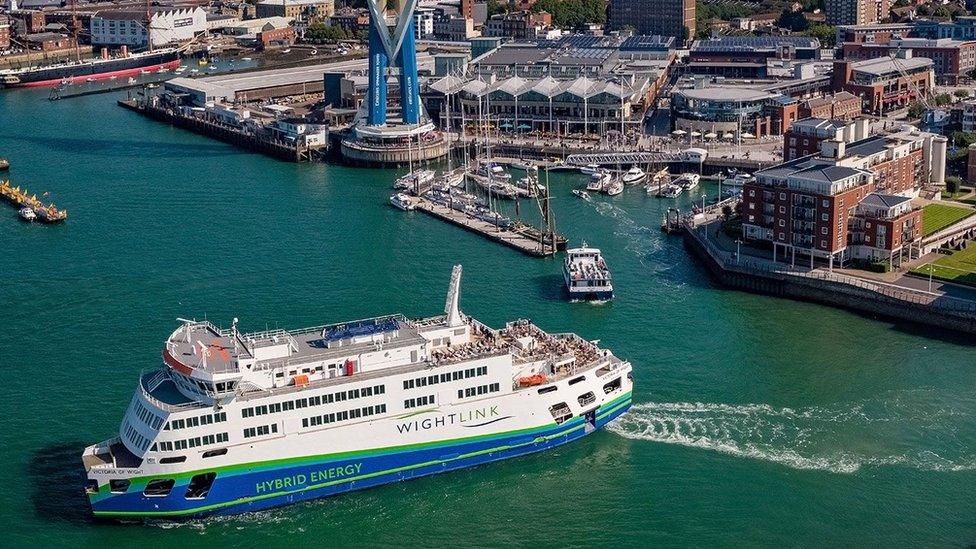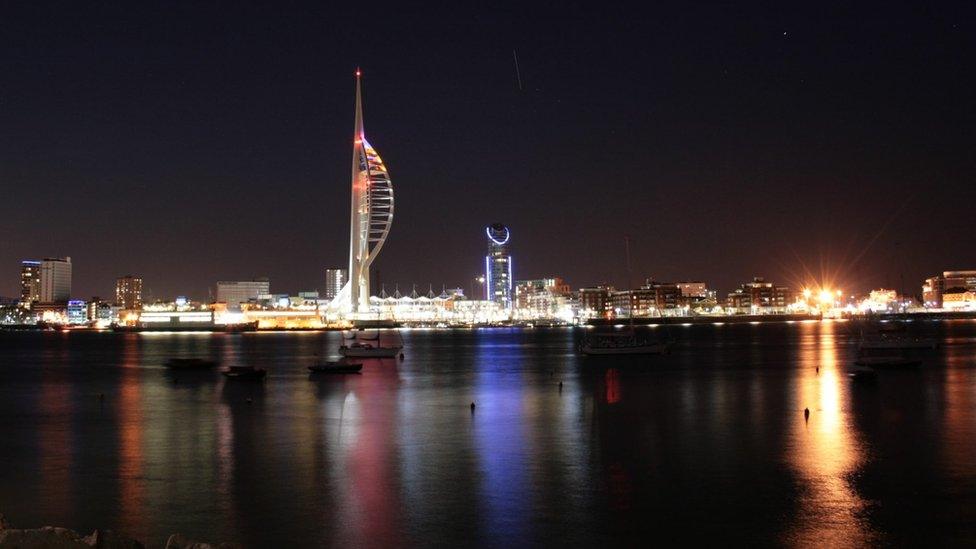Loss of captains blamed for poor Wightlink service
- Published

Wightlink has been accused of running down its Lymington-Yarmouth service
A ferry boss has blamed the loss of almost half his ships' captains for what he admitted had been poor service.
During the autumn, Wightlink's crossings between Lymington and Yarmouth on the Isle of Wight were hit by cancellations and timetable changes.
Boss Keith Greenfield told a Yarmouth Town Council meeting three out of seven captains had left the company.
He agreed to attend the meeting after the council raised concerns in November over the reliability of the service.
Councillor Steve Cowley had said: "It is having a negative impact on Yarmouth and its businesses, you cannot come over for a day because you don't know whether you can go back or not. People cannot rely on it."
Mr Greenfield admitted performance had been poor between August and November, according to the Local Democracy Reporting Service.
He said the Yarmouth-Lymington route had seen "far too many cancellations" and had operated at a 95% reliability rate, short of its target of at least 99.5%.
Mr Greenfield apologised and said crews had "bust a gut" to minimise the number of cancellations.
'Gauge demand'
An unprecedented three of seven ships' captains also left the company, which he said he had never seen before during his time at Wightlink.
He told the meeting they have to be specially trained for each route and hold the highest possible qualifications, so it took up to eight weeks to replace them.
"The single issue meant we failed to provide a service you all expect and deserve," said Mr Greenfield.
He said the company was "back to where we should be" and more captains would be trained in future for both its routes.
He also denied councillors' claims Wightlink had run down its service by decreasing sailings and bringing forward the last sailing of the day.
He responded: "It is a commercial service, the only income we have is ticket revenue and we have to gauge the size of the service to the demand that we think is there."

Follow BBC South on Facebook, external, Twitter, external, or Instagram, external. Send your story ideas to south.newsonline@bbc.co.uk, external.
Related topics
- Published16 December 2022

- Published14 November 2022
